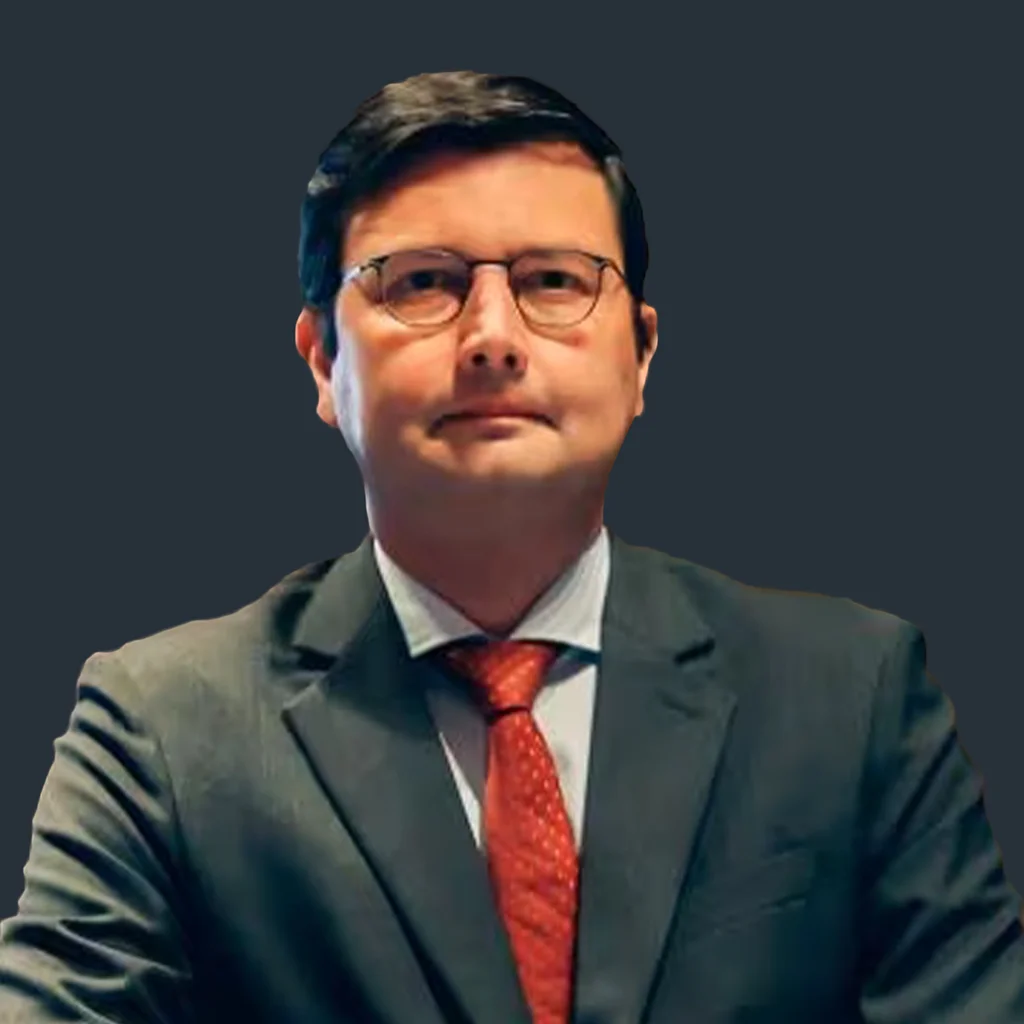
Gianpiero Leoncini
Executive Vice President of CAF. Previously, he serves as CAF Representative in Trinidad and Tobago and Director of the Secretariat and External Relations. Prior to joining the bank, he was Chief of Staff to the Secretary General of the Andean Community. He holds a degree in Political Science with a specialization in International Relations from the Institute of Political Studies of Paris and a Master’s in Public Administration from the National School of Administration, France.
Interview
Q/ How has continuous learning influenced CAF’s strategic orientation and what message would you convey to the public sector about the importance of incorporating learning into management?
I believe that within CAF’s mission to promote sustainable development and integration, we have the possibility of being a great learning school for ourselves and for our countries. First of all, we are a node for sharing experiences and bringing to countries, according to their needs, their requests, the best learning, the best experiences from different parts of the world and in particular from Latin America, to share them and reflect them in public policies. We have the great privilege of having a network of alliances, a series of radars in the region to detect where the success stories are and to be able to bring them to those who need them according to their priorities.
I think that this is a huge advantage that our representative offices have when they interact with their governments, of being able to listen to them and say: “in such and such another country they did this. Would you like us to look into it here?” And with our financial and technical assistance tools, we have the possibility of bringing those lessons and contributing to improving the quality of public policies. In the same way, internally, we have made an increasing effort to improve continuous learning through our Policy Learning and Impact Measurement Department, where the measurements and impact evaluations of each of our operations allow us to extract lessons and apply them to future projects.
In addition, I believe that the RED is a great learning tool because in each topic we choose, we thoroughly research all the most advanced policies and the most effective measures through rigorous academic work, and they are condensed into summaries that are extremely useful for decision-makers in the region. And so the RED is also one of CAF’s great learning tools.
Q/ What role do you attribute to the adoption of digital technologies for the functioning of organizations in the region? What are the major challenges for organizations to adopt these new digital technologies?
Digital transformation is at the center of CAF’s internal and external strategy. Internally, we have worked hard to shape a digital transformation strategy that helps the organization to be more competitive, more efficient, more agile, which is where it is always aiming. And in that sense, we are working with data, with artificial intelligence, with the replacement of the systems that manage the entire credit process to provide a better service to our countries. But not only that, also in the strategy of support to partner countries.
Digital transformation is one of the cross-cutting themes of our development strategy and is present in different aspects of public policy work, from investment in digitization and connectivity, but also in everything to do with education and the use of technological tools to transform education in the 21st century; in health issues, where we are also investing in telemedicine and improving health services; and with a central importance in the improvement of the State itself, what technology means in terms of providing a better service to citizens and, for example, also in the fight against corruption through the mechanisms of digitalized public procurement that can serve to prevent corruption. All this requires, of course, at the level of organizations, a great effort in digital literacy, in training, in investment in infrastructure, which is why it is a fundamental challenge and something to which CAF is deeply committed.
Q/ How important is it to strengthen the culture and sense of institutional belonging in order to motivate the effort and commitment of people in organizations? What can organizations in the region do to promote the commitment of their workers?
I believe that corporate culture is a fundamental element that any organization must have in order to do well. There are general principles such as workers, employees having clear goals, receiving healthy internal communication, promoting a positive work environment. And we at CAF are lucky to have these elements, but they are also based on a differentiating element that makes us a little proud and gives us a sense of belonging, which is being the bank of Latin America and the Caribbean for Latin America and the Caribbean.
We are not an organization that has donors and beneficiaries, but a cooperative where we all contribute and we all receive. The well-being of the organization also means the common good for all its members. This cultural element permeates and must permeate all the organization’s employees if we are to continue to guarantee our success and I believe that it is something of which we feel proud to work at CAF and that we continue to promote day by day as we grow and receive new talent. To transmit to them this vision, this factor that makes CAF a unique organization in Latin America and the Caribbean and that we translate into what we call the four Cs of our cultural identity: commitment, growth, confidence and quality. These are the elements that CAF works on as an organization to have an increasingly solid corporate culture that allows us to work with more enthusiasm, more motivation, and more effectively in favor of our countries.